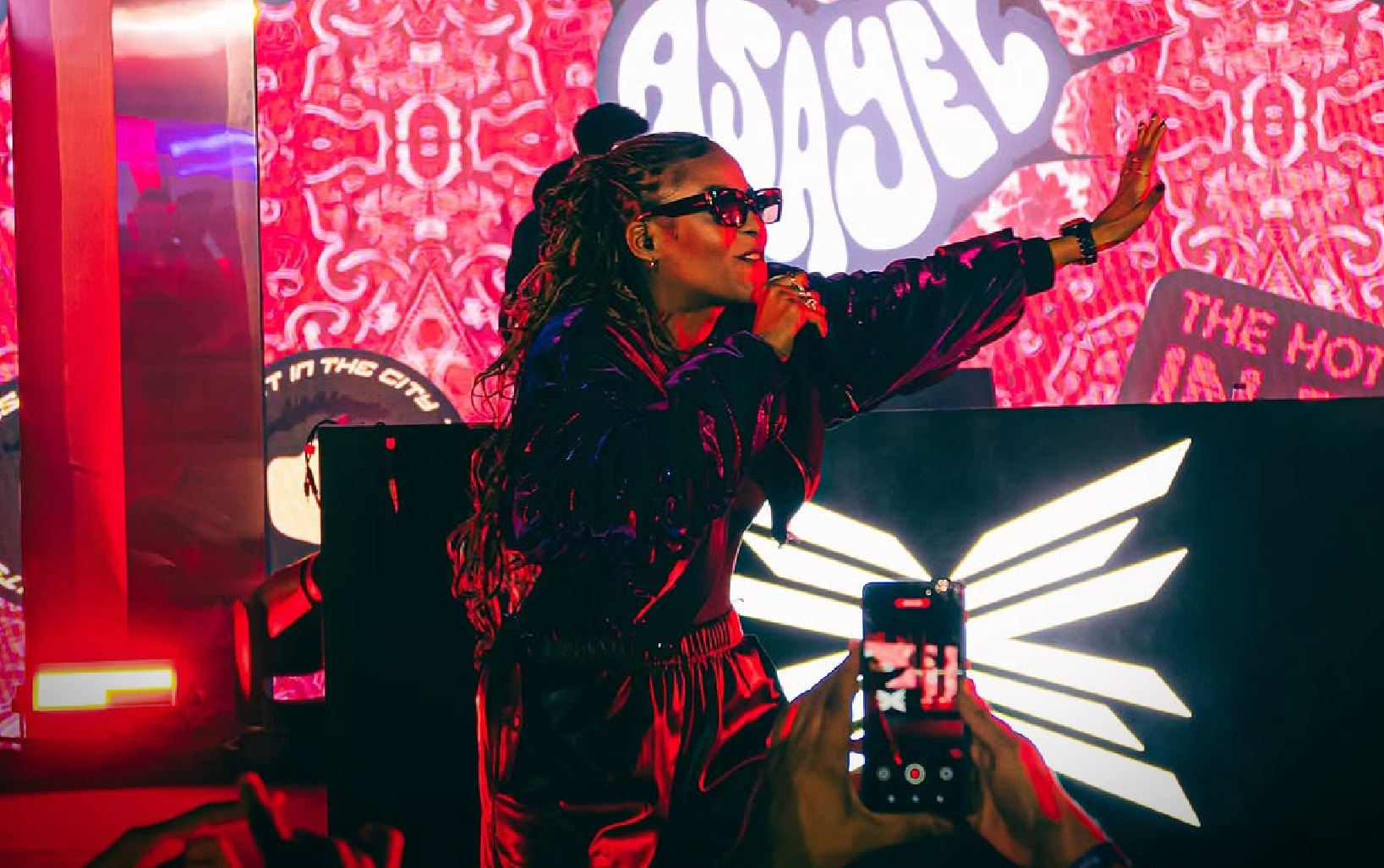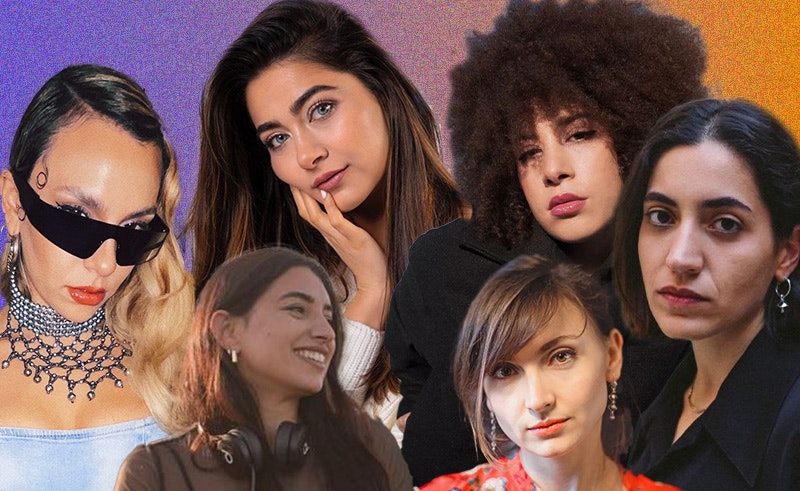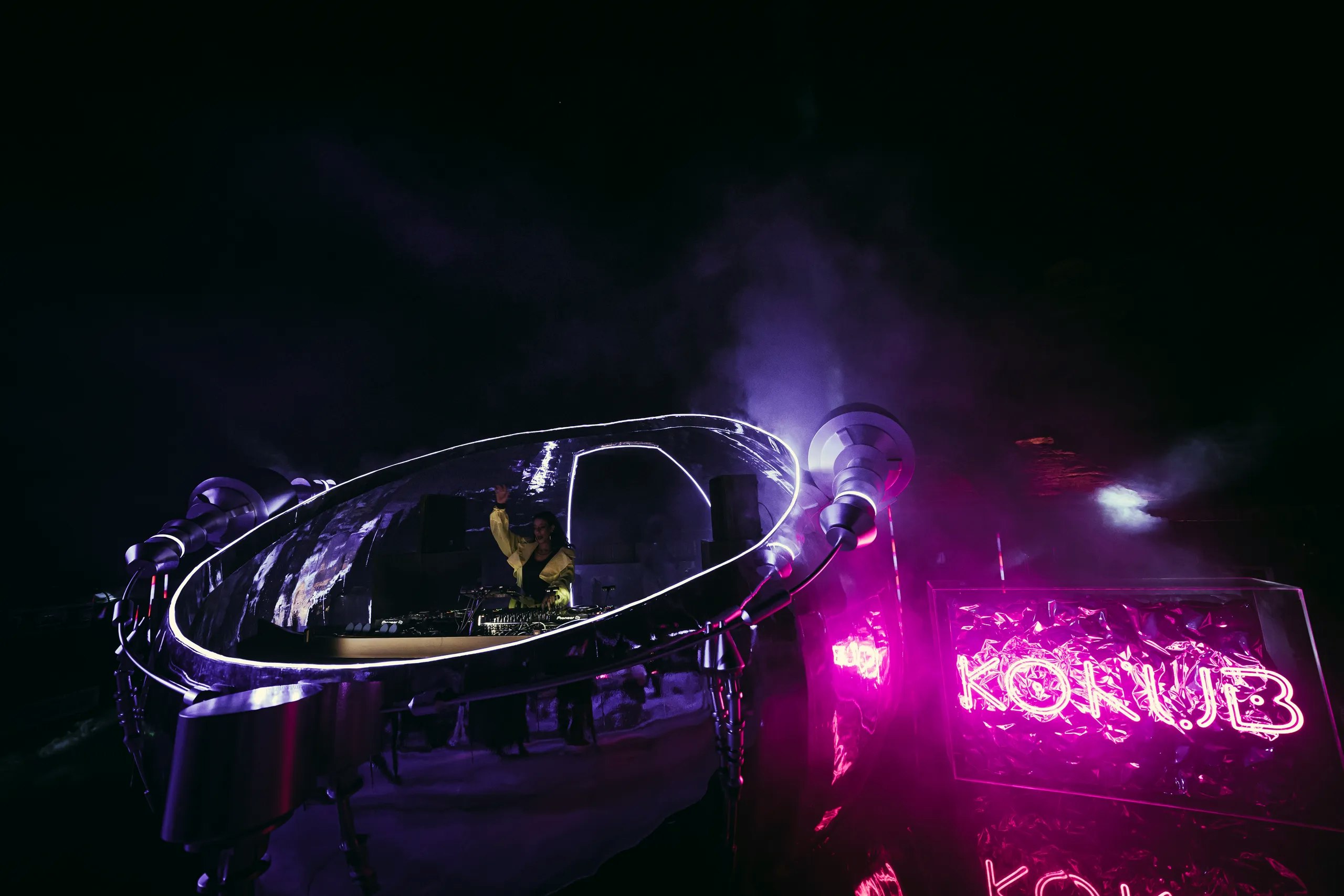

XP HUNNA Dialogues EP 1: Dropping the ‘Female’ Prefix Before ‘Artist’
By XP Publications
July 27 2024
XP HUNNA Dialogues EP 1: Dropping the ‘Female’ Prefix Before ‘Artist’
By XP Publications
July 27 2024
It is no secret the music industry grapples with issues of representation and inclusion, particularly for female talents. In the MENA region, and across the globe, these challenges are further nuanced by societal and cultural dynamics. Yet, a wave of social change is unfolding, bringing regional and global recognition to exceptional emerging female artists like Syrian singer and composer Lynn Adib, Palestinian sensation Elyanna, Saudi indie songwriter Fulana and Egyptian neo-soul rapper Felukah just to name a few.
While the the cultivation of inclusive music spaces has been a slow and steady process, there has been a recent flux of initiatives emerging with the goal of amplifying women in music and spotlighting their work such as Spotify’s Equal Arabia, UAE-based festival and agency Femme Fest, NVAK’s Musheqa, FEMENA from Tunisia and Morocco’s Sound Sisters along with XP Music Future’s Hunna Initiative.
‘HUNNA Dialogues’ is a new digital series by XP Music Futures’ women-led HUNNA initiative. This series amplifies the experiences of women making cultural tides and headways in the regional music industry and the stories they have to tell - from singer-songwriters to DJs, producers and record label owners. This highlights their contributions, perspectives and experiences as skilled professionals in a male dominated field, and the ways they’ve come to succeed in an industry with glaring gender disparity.
In episode one, we hear first hand accounts from six regional female artists about finding success in an otherwise male dominated industry.
Blu Fiefer | Musician & Record Label Owner
Blu Fiefer is a Mexican-Lebanese musician and founder of record label Mafi Budget, whose multi-disciplinary approach to her craft is perhaps why she is currently one of the most original-sounding artists with a distinct sonic and visual aesthetic. Throughout her 15-year musical career, she released a body of work driven by experimentation and sheer boldness that established her as more than a songwriter capable of penning cutting verses, with each track packed with unabashed storytelling and explicit in-your-face momentum. Blu Fiefer’s music reflects her diverse background and influences, blending elements of pop, R&B, electronics and more.
Based in Lebanon, her independent record label, Mafi Budget, centres its activities around nurturing Arab talent and promoting cultural exchanges through music. The label’s influence extends across the MENA region, producing multiple collaborations between creators in the hip-hop scene.
“While It's encouraging to see a growing movement towards inclusivity, what I find to be important is that we move towards a space where opportunities are based on talent and merit, rather than gender” Fiefer told us, “I believe in the power of art to transcend boundaries, and my focus is on contributing to the representation and growth of Arab culture through my art and my work with other artists.”
A commonplace issue globally is the boxing of artists, often on line ups as specifically ‘female artists’ a counterintuitive approach to curation Fiefer feels, “I believe that addressing gender bias in the music industry requires collective effort. By advocating for equal opportunities and representation, we can create a more inclusive environment where all artists, regardless of gender, are recognized for their talent and creativity instead of creating boxes and ‘female only’ playlists which in my opinion isolates us further from the conversation instead of including us.”
Lynn Adib | Singer & Composer
Born and raised in Damascus, Syria, Lynn Adib is a fully-fledged artist, considered one of the world’s few celestially voiced singers. Currently residing in Paris, Lynn is also a composer and member of the famous Lebanese alt-pop band Bedouin Burger, alongside renowned producer Zeid Hamdan. She has built up a reputation for herself in the regional and global music scene with her distinct sound, where she explores traditional Arabic music through the lens of jazz improvisation, soul, as well as electronic and experimental sonics.
“The biggest challenges women face in the MENA music industry stem from social constraints and traditions. There is this common misperception of female musicians, where we are often seen merely as entertainers,” Lynn Adib told us. “This restricts the freedom for women to envision their ‘images’, reducing them to mere shortcuts that emphasise their diva-like attitude or physical appearances.”
Though she is now an established singer and lyricist, Lynn said, “‘It wasn’t easy to prove myself in the industry not just because of my gender but also because I am not an instrument player. People assume that I took the easy road like that.” However, she still tries to maintain transparency and self-awareness of her personal motif behind making music. “I continue to do what I love, knowing there will always be judgement, but I trust the process and believe discipline is the key to overcoming these obstacles.”
“We have to start with educating the general public about women’s roles in our society. A woman can be a performer, a mother and a caregiver at the same time. We need dedicated platforms to address this,” Lynn shared. “We need a space that doesn’t only focus on our gender but also provides us with the necessary support to help us explore the depth of our stories and musical talents.”
Bonita | DJ & Sound Engineer
Farah Bishara, aka DJ Bonita, is a trailblazing female Kuwaiti DJ, former host of the English radio station, 99.7 RKFM, and owner of Kuwait’s first online record shop, Vinyl Destination. Bishara has built a strong reputation, both in her home country and internationally, with her heavily 90s-inspired hip-hop sets, incorporating elements from dance, Nu-disco, reggae, jazz and Latino music. She has been spinning at big events for a slew of renowned global fashion brands like Chopard, Monki, Tory Burch and Kenzo.
“Women are not usually recognized enough purely for their accomplishments, and if we do, it’s always under this ‘female’ umbrella, like we’re some separate entity or species,” Farah Bishara says. “It’s so frustrating that we always have to work harder to get at least the same opportunities that are easily provided for our male counterparts.”
While the gender disparities that women artists face are present across almost every aspect of the region’s music industry, Bishara shared that this issue is particularly pronounced within the dance music scene, and the historically more male-dominated field of DJing. “In Arab societies, our job is viewed as ‘unconventional’, which is so isolating,” Bishara said. “Many times I get asked technical questions by men in a condescending way, as if I don’t know anything about sound engineering or DJing. Some guy once asked me if I knew what an XLR is as if I hadn’t been using one for the past 12 years..[..]..It used to bother me at first, but now I just don’t even respond. Instead, I show them how it’s done and it puts everyone in their place.”
Dana Salah | Singer, Songwriter & DJ
Palestinian-Jordanian singer and songwriter Dana Salah has carved a place for herself in the music scene with her signature falahi pop sound. Drawing inspiration from classical Arabic instruments, her music is infused with traditional Palestinian folklore and contemporary Western sounds. The songstress initially began her musical career in the neighbourhoods of Brooklyn under the pseudonym of the Arab pop-indie artist King Deco. Back then she wasn’t only writing and singing in English, but also DJing and collaborating with A-list talent, from Larzz Principato to Kinetics & One Love.
Over the past few years, she returned to her hometown and relaunched her career in Arabic with ‘Weino’ and ‘Mishta’a, which led her to be selected as Spotify Arabia’s EQUAL Ambassador, making her the first Palestinian-Jordanian female artist to be featured on a Billboard in Times Square. “I always felt like I needed to leave Jordan to do that because there wasn’t a music industry back then,” Dana Salah told us. “There will always be challenges for women in the music scene, but I believe it is important that we take control of our voice and use our art and mediums to mobilise people and demand for more inclusive space.”
Speaking on how she hopes to inspire others to the cause, Salah said, “I always focus on themes of female empowerment in my music, hoping to help other aspiring Arab female artists who might relate to my personal experiences feel less alone if they’re not on the traditional path or following a different timeline than the communities around them..[..].. So often, we’ve believed that we have to adapt our sound to others to be taken seriously or to be heard. But that is changing and I certainly want to be a part of it.”
Baya | Rapper
Baya is a rising Tunisian rapper and songwriter, who is known for her playful auto-tune-free musical style. Slow, melodious and sometimes flirtatious with hints of dancehall, her music is authentic and fresh, packed with warm and powerful flows veering away from the cliches of typical rap music.
“Rapping often confronts more cultural resistance and stereotypes, unlike singing, which is now becoming more accepted. But, this only fuels my determination and motivates me to continue, in hopes it will become more accessible,” Baya told us. “I have been fortunate enough not to directly face situations where my abilities were undermined because I am a woman. However, I am always aware of the broader challenges women face in this industry and strive to support and uplift fellow female artists.”
When asked if it ever happens how she’d handle it, Baya said, “I will remain confident in my skills and simply let my work speak for itself.”
Fulana | Singer & Producer
Hailing from Saudi Arabia, Nadine Lingawi, aka Fulana, is a singer, producer and one of the pioneers of the Kingdom’s burgeoning indie music scene over the past few years. Donning the persona of a reprobate, Fulana’s productions are melancholic and authentic, holding a formidable artistic message that draws its strength from the nuanced inflections of human emotions. Throughout her discography, she never shies away from being vulnerable, always vocal about her lifelong struggle with bipolar disorder.
She initially started making music in her bedroom in 2007, as it was still unacceptable for women to openly make music in Saudi Arabia at the time. In late 2020, she signed with Saudi record label Wall of Sound, and kicked off her music career in an indie rock band with guitarist Husam AlSayed. Shortly after releasing their debut single ‘Minarets’, Fulana gave into her electronic music inclinations and launched her solo career with ‘Trouble’.
Her career is currently thriving as a singer. However, it doesn’t come without its share of challenges. “It’s so easily forgotten that I’m a producer first and foremost. Whenever I mention that I compose and produce the music myself, I can always sense a disbelief and it can be quite uncomfortable,” Fulana told SceneNoise. “I can say with full certainty that over the past few years opportunities and support have been overflowing equally for both female and male up-and-coming musicians within the Kingdom. Now, Saudi sets a great example in how specifically it supports women in leading positions. We’re already witnessing improvements in the industry with programs and communities such as HUNNA that support, educate, and connect women across all music sectors.”
When asked about the recipe of her success, how she overcomes the barriers she faces in the industry and continues to stay true to identity as an artist, Fulana said, “You have to allow growth, make mistakes, and welcome change. I wouldn't be as grounded if not for my manager, Elham, and the good team I have. The industry, like any other, can be dangerous if you’re not grounded, if you don’t have a deeper sense of self, if your goals are continuously wavering, and if you don’t have a good team that stands by you or at least friends in the industry with the same overview you have.”
Share this


